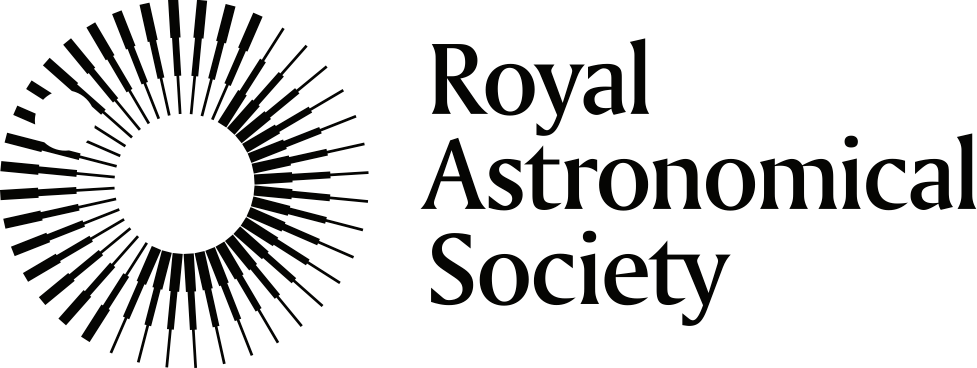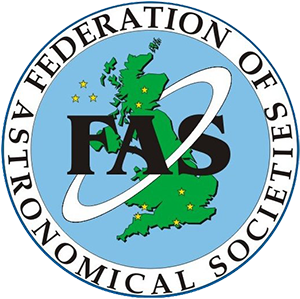An Online Convention on 17th April 2021
The FAS Online Convention 2021 is now on YouTube Here




We are delighted to invite you to our Online Convention.
Unfortunately it wasn’t possible to hold a physical event at the Institute of Astronomy in 2020, though we hope to be able to do so sometime this Autumn.
In the meanwhile, we are holding an online Convention on Saturday, April 17, from noon until 4:30 pm.
This will be free to everyone, and we have an impressive line-up of speakers for you.
Registration is now closed (Fully booked). The Convention will be streamed onto our YouTube page from 11:55 AM UK local
Attendee login details are being sent via Zoom.
All Eventbrite registrations have now been uploaded to Zoom and you should receive your details today (Friday).
Please check your spam & Junk mail folders just in case.
The Running Order is
| Start Time | Duration | Event |
|---|---|---|
| 11:45 | 00:15 | Open Waiting Room / Video – Slideshow |
| 12:00 | 00:05 | Welcome: FAS President |
| 12:05 | 00:05 | General Introduction |
| Session One | ||
| 12:10 | 00:50 | Lord Martin Rees, The Astronomer Royal From Mars to the Multiverse |
| 13:00 | 00:05 | Q and A |
| 13:05 | 00:50 | Greg Smye-Rumsby – Solar Eclipses |
| 13:55 | 00:05 | Q and A / Intro to Lunchtime presentations |
| 14:00 | 00:10 | Break |
| 14:10 | 00:15 | Lunchtime presentations |
| Session Two | ||
| 14:25 | 00:05 | Introduction to Session Two |
| 14:30 | 00:50 | Nik Szymanek – Overview of Deep Sky Imaging |
| 15:20 | 00:05 | Q and A |
| 15:25 | 00:50 | George Tahu – Perseverance for Discovery: NASA’s Mars Exploration Program |
| 16:15 | 00:05 | Q and A |
| 16:20 | 00:05 | Roundup |
| 16:25 | 00:05 | Thanks / About the FAS / News: FAS President |
| 16:30 | Close |
We are delighted to have the following sponsors and supporters for the convention –
Our Sponsors



• The Royal Astronomical Society – ras.ac.uk
• BBC Sky At Night Magazine – www.skyatnightmagazine.com
• The Widescreen Centre – www.widescreen-centre.co.uk
Our Supporters




• David A. Hardy – AstroArt www.astroart.org
• Frontier Development Lab fdl.ai
• Go Stargazing www.gostargazing.co.uk
• Spaceflight UK – Space lectures www.facebook.com/jerry.stone.9828

Keynote speaker – Lord Martin Rees, The Astronomer Royal –
From Mars to the Multiverse
This talk will describe some new discoveries in our Solar System, and what we’re learning about exoplanets — many potentially habitable, Do we expect to find alien life? The next generation of telescopes my bring us closer to an answer. Further away, we have better evidence of the formation of black holes, and galaxies, and about the conditions very soon after the Big Bang.
Some of us even speculate that “our” big bang wasn’t the only one.
Martin Rees is the UK’s Astronomer Royal. He is based at Cambridge University where he is a Fellow (and Former Master) of Trinity College. He is a former President of the Royal Society and Director of the Institute of Astronomy.. His research interests include space exploration, high energy astrophysics, and cosmology. In addition to his research publications he has written many general articles and ten books, including “Just Six Numbers”, and most recently “On the Future: Prospects for Humanity” and a new edition of “Gravity’s Fatal Attraction”.

Greg Smye-Rumsby – Solar Eclipses
Every now and then the Moon passes exactly between the Earth and the Sun and because the two bodies appear to be of similar size we experience a solar eclipse. These events are completely predictable and we can calculate eclipses many centuries into the future. Let me take you on a personal journey of these most amazing natural phenomena.
As Gagarin and Glenn were taking the world into a new era, so Greg’s interest in all things space were set alight. He joined the Orpington Astronomical society in 1980 and had two three-year terms as chairperson.
Today he works as an astronomical designer for Astronomy Now and the Royal Observatory, where he also runs planetarium shows, evening classes and workshops, where he would happily turn up in a SOKOL spacesuit! He also lectures on topics about planetary formation, alien life and the history of astronomy.

Nik Szymanek – Overview of Deep Sky Imaging
This talk will provide an introduction to imaging the deep sky using star trackers and DSLR cameras before progressing to the use of CCD and CMOS cameras and the changing ways that amateurs are imaging the night sky. New and powerful processing software will be discussed and there will be a couple of processing demonstrations on deep sky objects. The final part of the talkwill discuss the use of remote imaging using either private equipment at hosted locations abroad, as well as purchasing imaging time on large telescopes in prime locations in the southern hemisphere.
Nik Szymanek is one of the UK’s best and best-known astrophotographers – a lifelong amateur astronomer and imager. He began photographing the night sky in the mid-1980’s and has witnessed the meteoric rise of CCD, DSLR and CMOS cameras to the astrophotography community. For many years he visited prime observing locations abroad such as La Palma and Hawaii.
Nik has a well-equipped back-garden observatory in North Essex as well as a share in a hosted observatory complex in Spain. He is also a regular user of the Telescope Live remote imaging platform located in Chile, Spain and Australia. By day Nik writes a Masterclass series on imaging for Astronomy Now magazine.

George Tahu – Perseverance for Discovery: NASA’s Mars Exploration Program
After nearly 300 million miles, NASA’s Perseverance rover completed its journey to Mars on February 18, 2021. But, to reach the surface safely, it had to survive the harrowing final phase known as Entry, Descent, and Landing. Only then could the rover – the biggest, heaviest, cleanest, and most sophisticated six-wheeled robotic geologist ever launched into space – search Jezero Crater for signs of ancient life and collect samples that will eventually be returned to Earth. Join us to hear about the latest mission of NASA’s Mars Exploration Program, and future plans with international partners for the Red Planet.
George Tahu is the Mars 2020 Perseverance mission Program Executive at NASA Headquarters in Washington, DC; and he is also serving as Deputy Director of NASA’s Mars Exploration Program. In addition to exploring Mars, he has previously led the development of robotic lunar landers, astrobiology cubesat payloads, and NASA science instrument contributions for international partner missions.
Prior to joining NASA, George was a space project manager for the U.S. Army Space and Missile Defense Command, and served as space policy specialist at the U.S. Department of Commerce. Previously, he conducted space policy analysis and research with ANSER’s Center for International Aerospace Cooperation.

